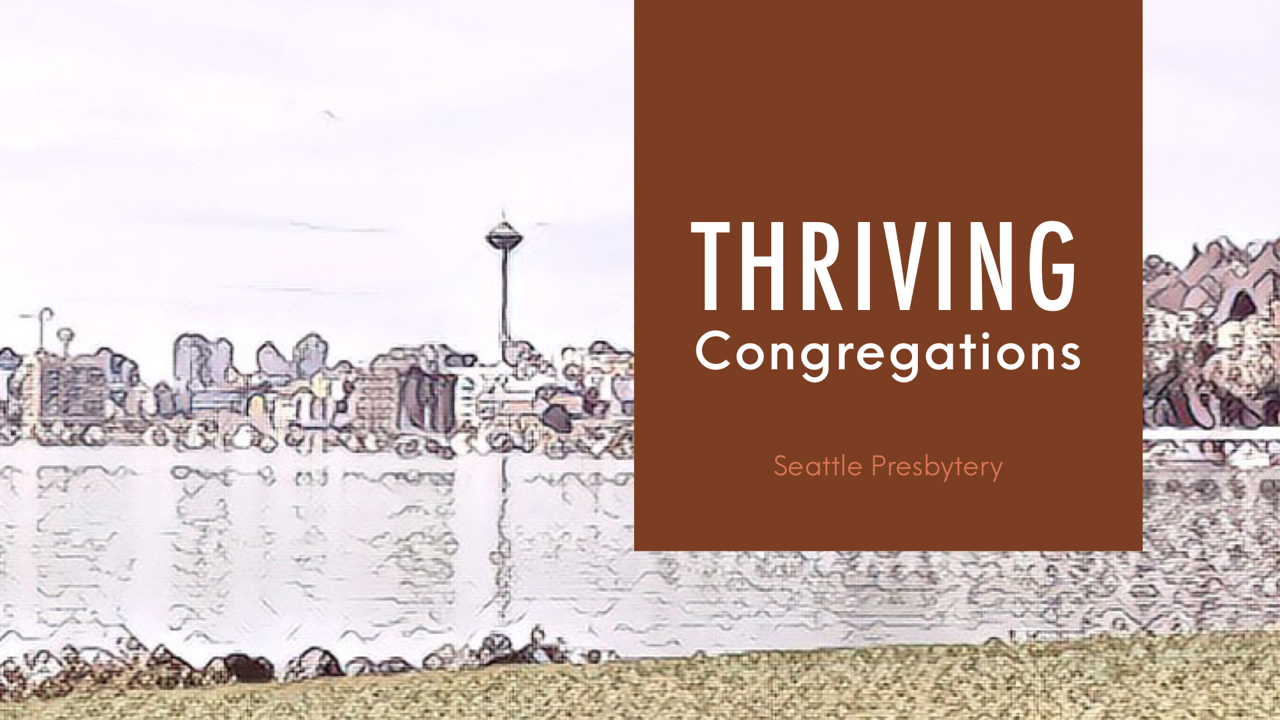SEATTLE PRESBYTERY’S THRIVING CONGREGATIONS PROGRAM
In 2020, Seattle Presbytery submitted a grant proposal to the Lilly Endowment and received its proposed four-year Thriving Congregations grant.
Research evidences the trends and challenges facing congregations today and tomorrow. With aging facilities and diversifying communities, it is essential to learn how embracing communities can allow faith and theological commitments to find new life through community relationships. The aim of the initiative is to prepare congregations to be transformational learning communities able to faithfully and creatively confront social and cultural challenges.
What is the Thriving Congregations Program?
The Seattle Presbytery seeks to engage learning cohorts of five-to-ten congregations each year to participate in examination of their ecclesial and theological commitments, creative cultivation of Christian practices, and how they are informed by the social and cultural context of their communities. In order to accomplish this the Seattle Presbytery is developing a two-year cohort program that assists congregations in becoming transformational learning communities.
Congregations will learn to: 1) discern congregational identity, 2) exegete their ministry context, 3) practice intercultural community-building, and 4) form innovative collaborative ministry models. Learning cohorts will participate in bi-monthly gatherings, learn to interpret community, receive prayer and coaching, form a collaborative network and reading group, practice intercultural leadership, and build community-based ministry.
Facilitated by the learning cohort staff, a training table, and guest lecturers, a learning community will engage this two-year journey with a new cohort beginning each year in years one through three. Through this overlapping structure successive cohorts will inform and support each other.
How do congregations participate? Interested congregations are asked to submit a one-page Letter of Intent by February 15, 2021, describing 1) how this program might be helpful and informative, 2) what aspects of this program relate to your own congregational journey, and 3) what are some challenges you anticipate needing to be addressed.
